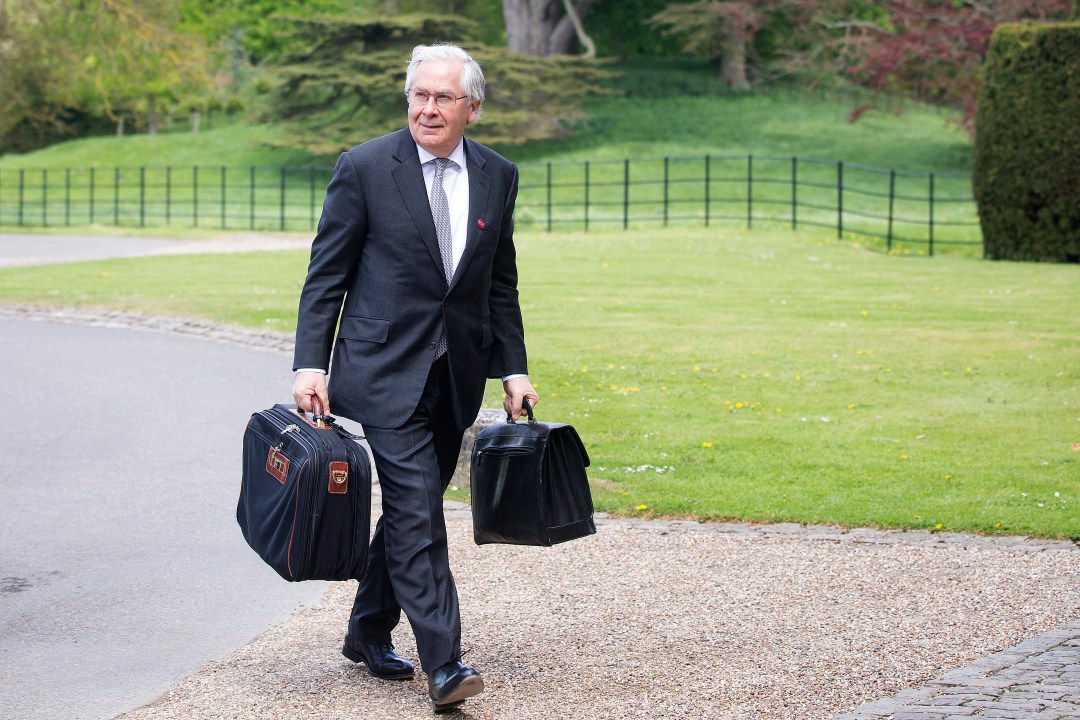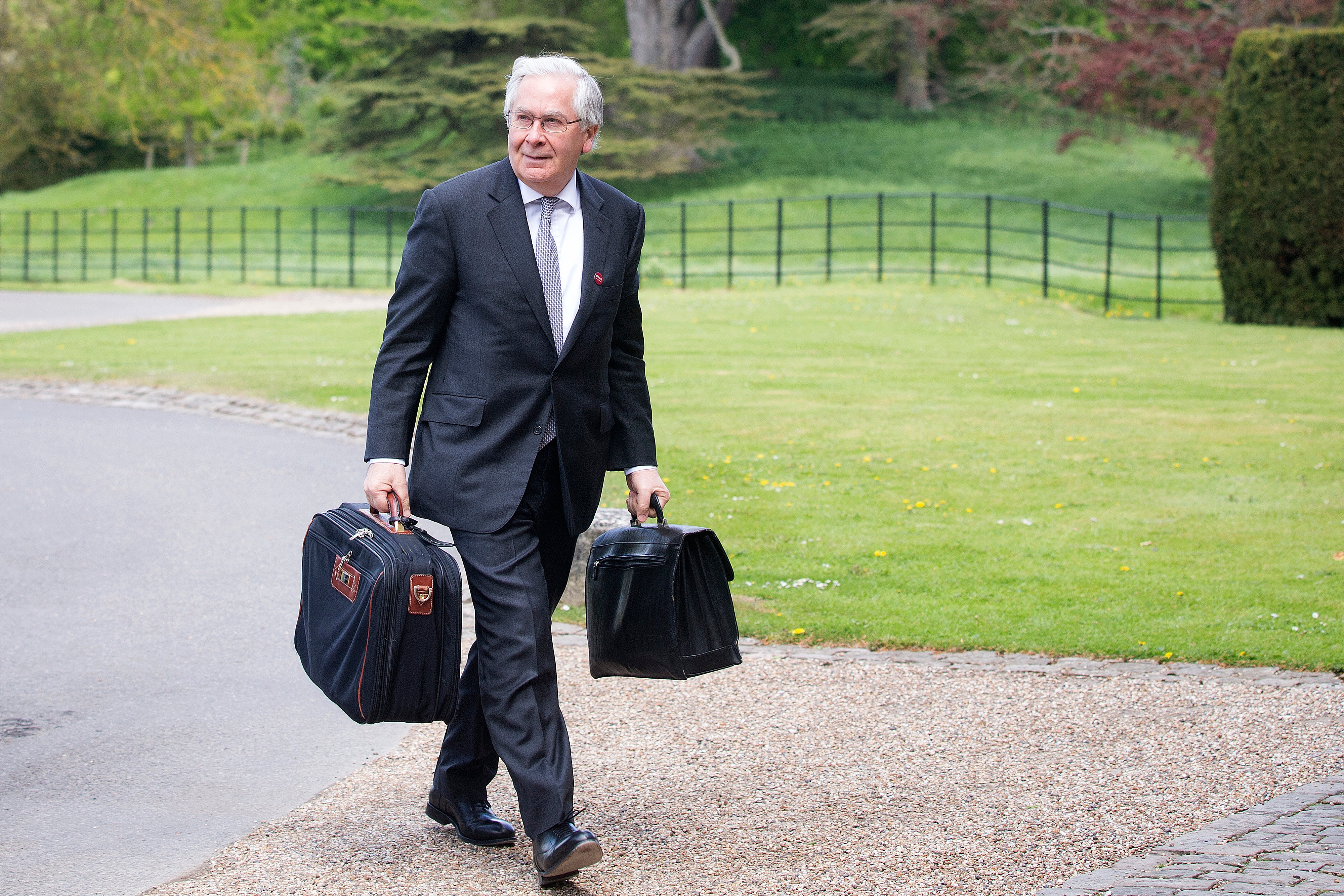Sir Mervyn King was his own man to the end: professorial, downbeat, against the tide. At last week’s Mansion House dinner — as in his final vote in favour of more QE, on which his Monetary Policy Committee colleagues bade him farewell by defeating him six to three — he was still worrying about a potential reversal of the fragile recovery. Even as he packs his collection of Aston Villa programmes and MPC minutes into plastic crates, the prospect of collateral damage from another euro-storm will be furrowing his brow.
So his last speech as Governor was short on jokes and long on warnings: about ‘unfinished business’ and lessons unlearned, about ‘the audacity of pessimism’ as an antidote to complacency. The ovation that followed (to answer my own question a fortnight ago as to how fulsome it would be) was no more than polite: as he ended with the traditional toast to the Lord Mayor, the assembly shuffled to its feet — but sat down again, a little awkwardly, within half a minute.
Neither the City nor the media nor the politicos at what he called ‘the other end of town’ ever loved Mervyn. He steeled himself to the loneliness of that position — and it liberated him to stick to his principles, right or wrong. All he can do now, as he heads for the House of Lords, is ignore valedictory swipes and await history’s verdict. He will have in mind Alan Greenspan of the US Federal Reserve, saluted as a monetary genius on his retirement in 2006, vilified these days as a godfather of the financial crisis.
Judgment in King’s case depends on whether the economy hits another shock while a portion of blame can still be heaped on him; but it must also take account of what-ifs. Would the Bank have had more clout, or better relations with Downing Street, or taken different decisions, if Gordon Brown had appointed the europhile Andrew Crockett or the media-friendly Howard Davies in 2003, instead of King? What if King had won more arguments, and we’d had less moral hazard, more QE and less ‘funding for lending’? In truth, it’s always going to be difficult to say whether King’s personal part in the drama of recent years actually made matters better or worse.
What can be said is that, under the new structure which includes the Prudential Regulation Authority chaired by the Governor, he leaves the Bank in a much stronger position than he found it a decade ago, shorn of responsibility for banking supervision and adrift in Brown’s ‘tripartite’ stand-off with the Treasury and the FSA. As for King’s attributes of intellectual obstinacy, righteous indignation at bankers’ misbehaviour and disdain for shallow politics, let me echo Churchill’s tribute to Neville Chamberlain: as ‘history with its flickering lamp stumbles along the trail of the past… the only guide to a man is his conscience; the only shield to his memory is the rectitude and sincerity of his actions… with this shield, however the fates may play, we march always in the ranks of honour.’
North and south
Everyone above a line from Gloucester to Grimsby will be scrutinising George Osborne’s spending review for evidence of anti-northern prejudice. At York University’s Festival of Ideas last week, I argued that the ‘north-south divide’ is often little more than a lazy journalist’s cliché (as in ‘Cricket’s north-south divide: Lord’s sell-out, Heading-ley wash-out’) but also acknowledged the weight of Sheffield geographer Danny Dorling’s analysis of bad outcomes that tend to befall those on the wrong side of the boundary — as well as the fact that, from the provinces, London looks increasingly like a super-rich city-state akin to Hong Kong.
Take philanthropic giving to the arts in 2012: up 10 per cent in London to £539 million, down 3.5 per cent to £121 million in the rest of the England. Quite right, then, that York’s National Railway Museum, Bradford’s National Media Museum and Manchester’s Museum of Science and Industry were specifically reprieved by culture minister Ed Vaizey ahead of the spending review, after their parent Science Museum in London made a show of threatening to close them. Indeed, as arts and museums face another 5 per cent cut from the DCMS pot for 2015-16, it would be equitable to skew the distribution of scarce public funding northwards, while challenging London’s deep-pocketed philanthropists and corporate sponsors to up their game by several more notches. The campaign starts here.
In-flight service
As thoughts turn to summer travel, I note that Ryanair, now the world’s No. 1 airline by passenger numbers, has signed for 175 new Boeing 737s and is talking of 200 more, while its smaller rival Flybe — so much more polite to its customers — has lost £41 million, laid off staff and deferred aircraft orders. Ryanair’s rude and ruthless Michael O’Leary once described Flybe as a ‘crappy competitor’, while Flybe founder Jim French told The Spectator he felt like ‘a salmon in a whale tank’. If Flybe fails while Ryanair’s low-cost formula maintains its relentless advance, it will be the ultimate triumph of commercial bad manners.
Wait for the Toast
Girl Guides still promise to serve the Queen (but not God) and Mansion House diners still drink her health before dessert. But the dignified Loyal Toast has lost its efficient purpose: it no longer signals permission to light a cigar — which gets you arrested — and I’ve noticed that younger guests at formal dinners nip out for a pee whenever they feel the need, rather than waiting for an official break after the salute to Her Majesty. I was also irritated by what I took to be foreign bankers taking photographs throughout the evening by waving their smartphones over their heads. So let us give the Loyal Toast a 21st-century function, as the moment before which it is strictly forbidden to tweet, check emails, or otherwise play with your infernal mobile.








Comments